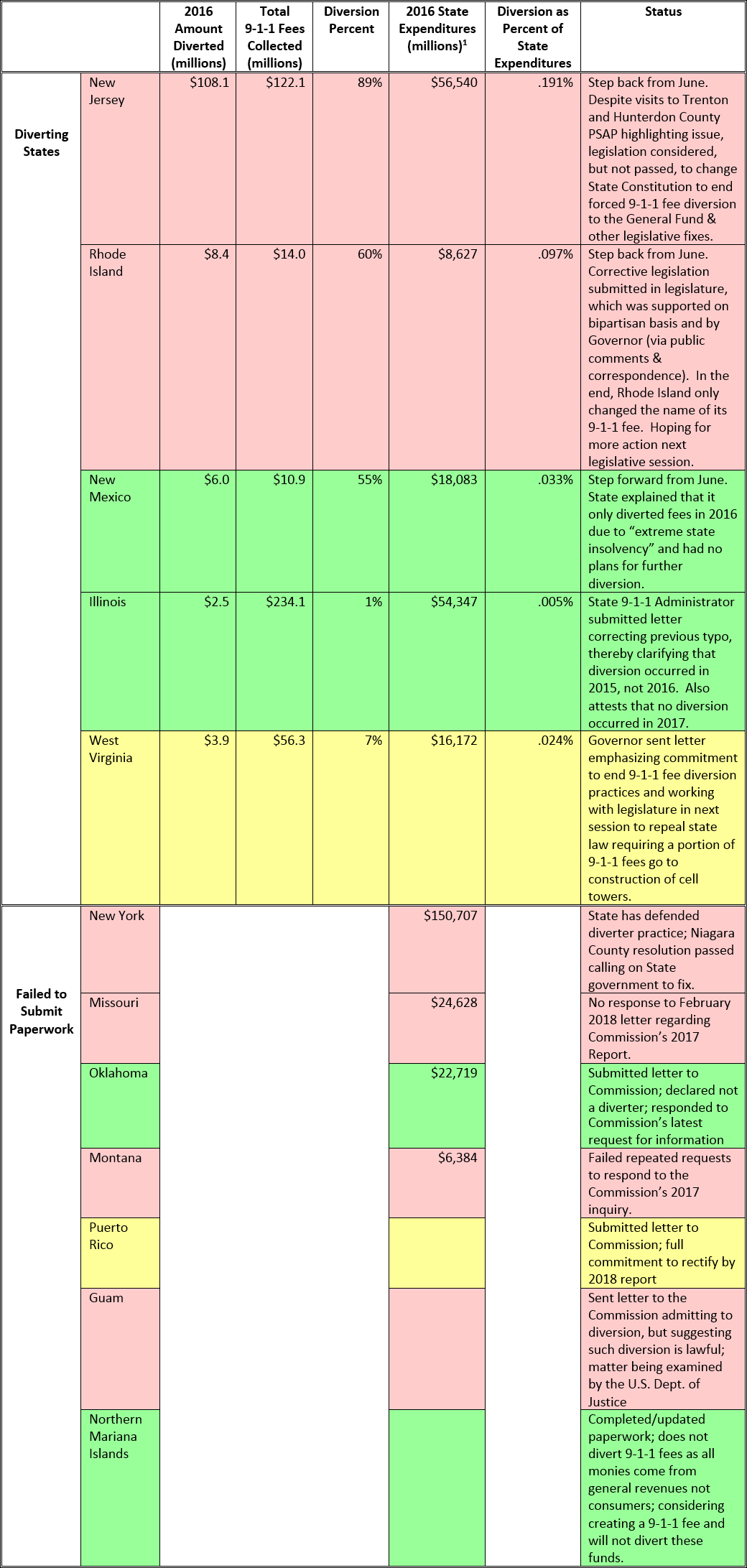It's now been almost ten months since my colleague, Commissioner Rosenworcel, and I penned an op-ed in The Hill reaffirming the need to end states' diversion of critical 9-1-1 fees collected from consumers to non-9-1-1 functions. Since that time, important legislation has been introduced and considered in the House of Representatives that would provide the Commission with an enhanced role in determining what exactly constitutes 9-1-1 fee diversion. This is an important step. Once the Commission provides a clear definition of diversion, and states may no longer thwart consumer expectations by passing laws permitting such diversion, diversionary practices should decline. But a more comprehensive bill may be needed to deal with recalcitrant states committed to diversion.
In addition to supporting a legislative response, I have visited and worked with those states found to be diverters in the Commission's 2017 Report. I also wrote to those states and territories that failed to respond to the Commission's request for data. In June, I published a blog highlighting both my successes and failures in my outreach to these states. To be completely candid, even though citizens I met with in New York, New Jersey, and Rhode Island were outraged by the practices of their state governments, naming-and-shaming hasn't eradicated the problem of fee diversion. Nonetheless, there have been some successes. With six months passing since my last report card, and in anticipation of the Commission's next statutory report due out at the end of the year, it seems appropriate to provide another status update.
Of the five self-reported diverting states and seven states and territories that did not respond to the Commission's inquiry (for a total of 12), two states (Illinois and Oklahoma) and one territory (Northern Mariana Islands) remedied filing errors to clarify that they are not diverters; one state (West Virginia) and one territory (Puerto Rico) are in the process of ending diversion within their borders; and one state (New Mexico) has ended its diversionary practices going forward. This leaves five states and one territory (New Jersey, Rhode Island, New York, Missouri, Montana, and Guam) that have not yet either provided the Commission with their 2016 state data or ended their explicit and despicable practice of stealing 9-1-1 fees for their own discretionary spending.

1 National Association of State Budget Officers, State Expenditure Report, Examining Fiscal 2015-2017 State Spending, https://higherlogicdownload.s3.amazonaws.com/NASBO/9d2d2db1-c943-4f1b-b750-0fca152d64c2/UploadedImages/SER%20Archive/State_Expenditure_Report__Fiscal_2015-2017_-S.pdf